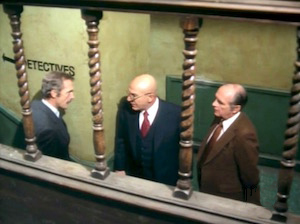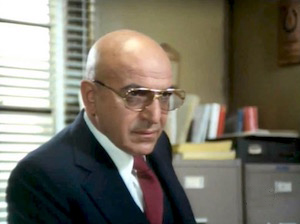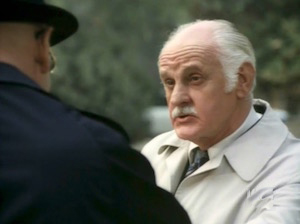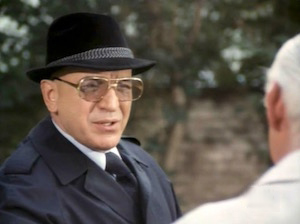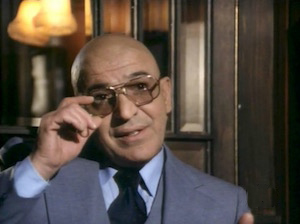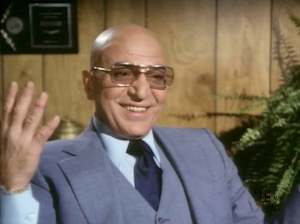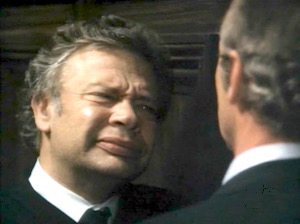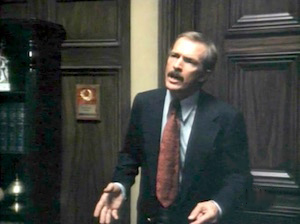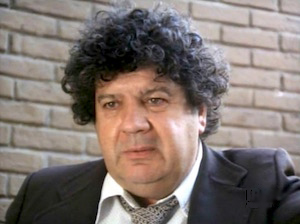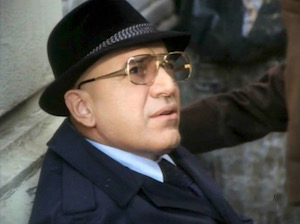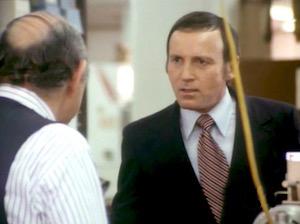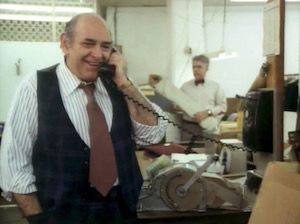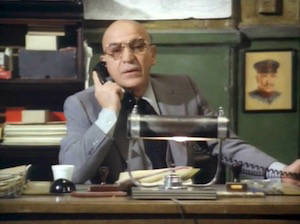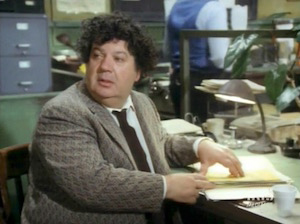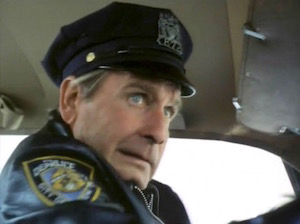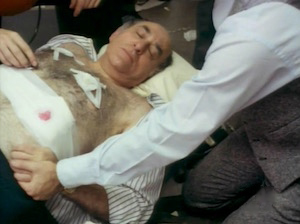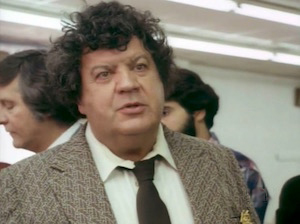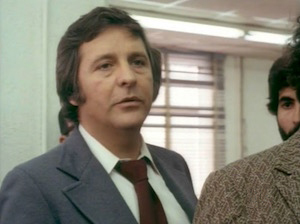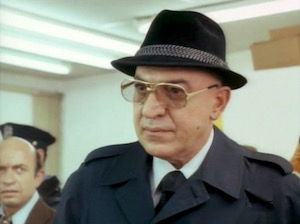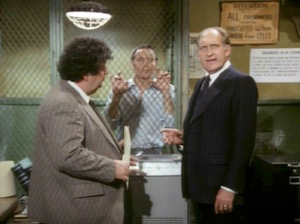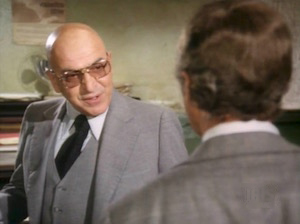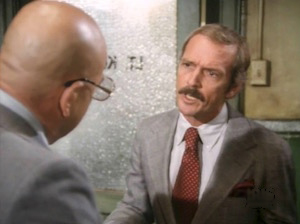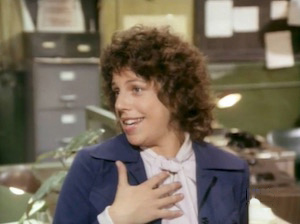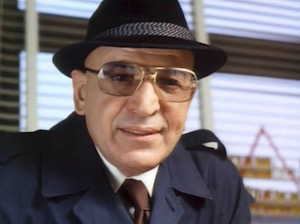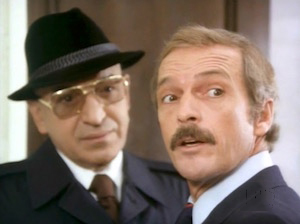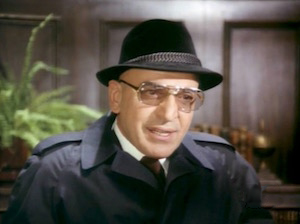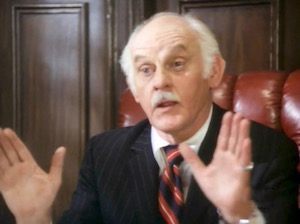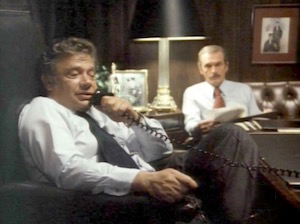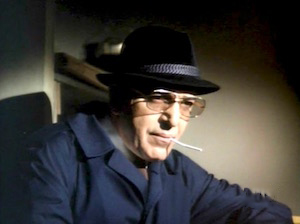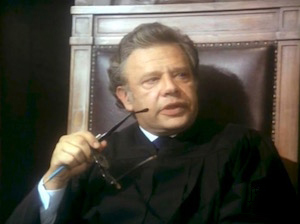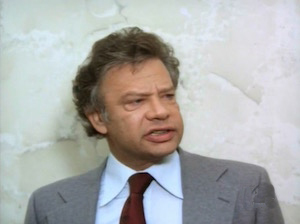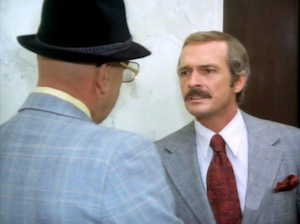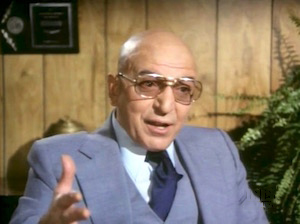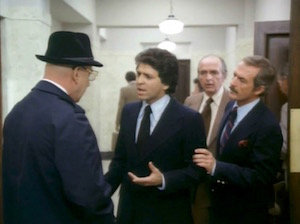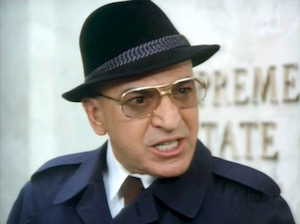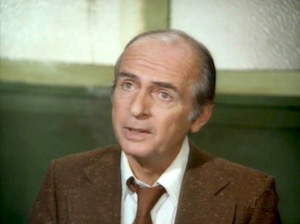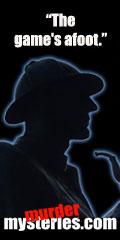
Kojak
Kojak was an enormously-popular series that starred Telly Savalas as the title character, New York City Police Department Detective Lieutenant Theo Kojak. Taking over the time slot left open by the popular Cannon series, which moved one hour earlier, Kojak aired on CBS from October of 1973 to March of 1978. Theo Kojak was later ranked by TV Guide as number 18 on its 50 Greatest TV Characters of All Time list.
The show was created by Abby Mann, an Academy Award–winning screenwriter best known for his work on such dramatic anthologies as Robert Montgomery Presents and Playhouse 90. Universal approached him to do a story based on the 1963 Wylie-Hoffert Career Girls Murders, the brutal rape and murder of two young professional women in Manhattan.
Poor police work — and the prevailing disregard for suspects' civil rights — resulted in the Wylie-Hoffert crimes being falsely attributed to a young African-American man, George Whitmore. After illegally obtaining a confession, the police had him all but convicted, until a second investigation by a different team of detectives exonerated the suspect and identified the real killer, a Puerto-Rican drug addict.
The project was developed by Mann as a gritty police procedural, with an undercurrent of institutionalized prejudice against the civil rights of suspects and witnesses, culminating in the 1973 made-for-TV movie, The Marcus-Nelson Murders, the opening and closing titles of which emphasized that it was a fictionalized account of the events that led to the creation of Miranda rights by the U.S. Supreme Court in 1966.
Telly Savalas starred in The Marcus-Nelson Murders as a police detective whose last name was spelled "Kojack" and the film ended up serving as a pilot for the Kojak TV series. Kojak himself was a composite character, based on a number of detectives, lawyers, and reporters who were involved in the Wylie-Hoffert murder case.
The series was set in the New York City Police Department's Eleventh Precinct, Manhattan South Patrol Borough. The show focused on the efforts of the tough and incorruptible Lieutenant Theodore ("Theo") Kojak (Telly Savalas), a bald, dapper, New York City policeman, who liked Tootsie Roll Pops and became known by his catchphrase, "Who loves ya, baby?" Kojak was stubborn and tenacious – and was given to displays of dark, cynical wit, as well as a tendency to bend the rules if that's what it took to bring a criminal to justice. Savalas said he considered Kojak to be a "basically honest character, tough but with feelings—the kind of guy who might kick a hooker in the tail if he had to, but they'd understand each other because maybe they grew up on the same kind of block." Kojak's Greek American heritage, which Savalas shared, was a prominent part of the show.
In its early episodes, Kojak was often seen smoking cigarettes. To cut down on his own habit, Kojak began using lollipops as a substitute. It was first seen in Season 1 in the episode "Dark Sunday", when Kojak lights a cigarette as he begins questioning a witness, but thinks better of it and sticks a Tootsie Pop in his mouth instead. Later in the episode, he's asked about the lollipop and he answers, "I'm looking to close the generation gap." Lollipops subsequently became a trademark of the character.
His longtime supervisor was Capt. Frank McNeil (Dan Frazer). Later in the series, McNeil was promoted to Chief of Detectives in Manhattan. Kojak is the commander of the Manhattan South Precinct's detective squad, which included one of his favorite employees: young plainclothes officer Det. Bobby Crocker (Kevin Dobson). Detective Stavros (played by Telly's real-life brother George Savalas), Detective Saperstein (Mark Russell), and Detective Rizzo (Vince Conti), all gave Kojak support. Roger Robinson appeared in a dozen episodes as Detective Gil Weaver.
Among the many guest stars in the series' original run were a number of illustrious character actors and actresses, including F. Murray Abraham, Maud Adams, Patrick Adiarte, Danny Aiello, Paul Anka, Armand Assante, Eileen Brennan, Blair Brown, Dabney Coleman, Scatman Crothers, Héctor Elizondo, Richard Gere, Ruth Gordon, Gloria Grahame, Robert Ito, Harvey Keitel, Sally Kirkland, Tina Louise, Carol Lynley, Sheree North, Geraldine Page, Kathleen Quinlan, Lynn Redgrave, John Ritter, Sylvester Stallone, Danny Thomas, Forrest Tucker, Christopher Walken, Eli Wallach, Shelley Winters and James Woods.
Although the show focused on Kojak's police work, it sometimes steered into other areas of the character's lives, such as the first season episode "Knockover" which offered a subplot involving Kojak romancing a (much younger) female police officer.
In 1976, acclaimed crime writer Joe Gores won an Edgar Award for Best Episode in a TV Series Teleplay for the third-season episode "No Immunity for Murder".
The show was cancelled after five seasons in 1978 due to falling ratings, but reruns of Kojak became successful. Years after the series ended, Savalas reprised the role in two TV movies, The Belarus File (1985), an adaptation of the John Loftus book The Belarus Secret, and The Price of Justice (1987), based on Dorothy Uhnak's novel, The Investigation — even though Kojak isn't a character in either book.
In 1989–1990, Kojak returned to TV in five two-hour episodes on ABC, rotating with three other series as part of the ABC Mystery Movie. No longer a lieutenant who ran a precinct detective squad, Kojak was promoted to inspector and put in charge of the NYPD's city-wide Major Crimes Squad. Andre Braugher was cast as a young detective assigned to his command.
The Savalas brothers (Telly & George), Frazer and Dobson are the only cast members to appear in every episode of the original series, staying for its entire run.
Kojak used a red, magnetically mounted Federal Signal Fireball rotating emergency light on his unmarked police car (a bronze 1973 Buick Century Regal 455). This kind of emergency light has come to be called a "Kojak Light" among police. During the series, Kojak's duty weapon was either a Smith & Wesson Model 15 or a .38 Special snub nosed Smith & Wesson Bodyguard. The latter was typically carried by New York City Police Department detectives of that era. Kojak often carried it in the front right pocket of his overcoat or suit jacket, or in his hand as he approached a scene where he expected danger. This became known as carrying a weapon "Kojak Style" or as the "Kojak Carry" by police.
In the 1977 movie Smokey and the Bandit, Cledus Snow (Jerry Reed) used contemporary CB slang when he called a police officer with a radar gun a "Kojak with a Kodak".
In the film comedy Foul Play, Chevy Chase and Goldie Hawn at one point commandeer a livery vehicle with two Asian tourists in the backseat. When they grow agitated at his fast driving, Chase tells them he's a policeman like Kojak. Even though they know very little English, the name Kojak instantly turns their chagrin into enthusiasm and they end up enjoying the high-speed pursuit tremendously. When the car stops and they're left in the backseat, the male tourist cracks a smile and yells "Kojak! BANG! BANG!"
In Brazil, the show was so successful that in the '70s and '80s, "Kojak" had become Brazilian slang for "bald man", and Telly Savalas ended up visiting Brazil for promotional work. In Rio de Janeiro, the expression: "I won't give a chance to Kojak" became popular among criminals, meaning the speaker didn't want to leave any clues behind for police. Later, the expression grew popular with lay people. It would come to mean "I won't let anyone see my mistakes".
In Chile, the show was so successful that the term "Kojak" became slang for "lollipop".
